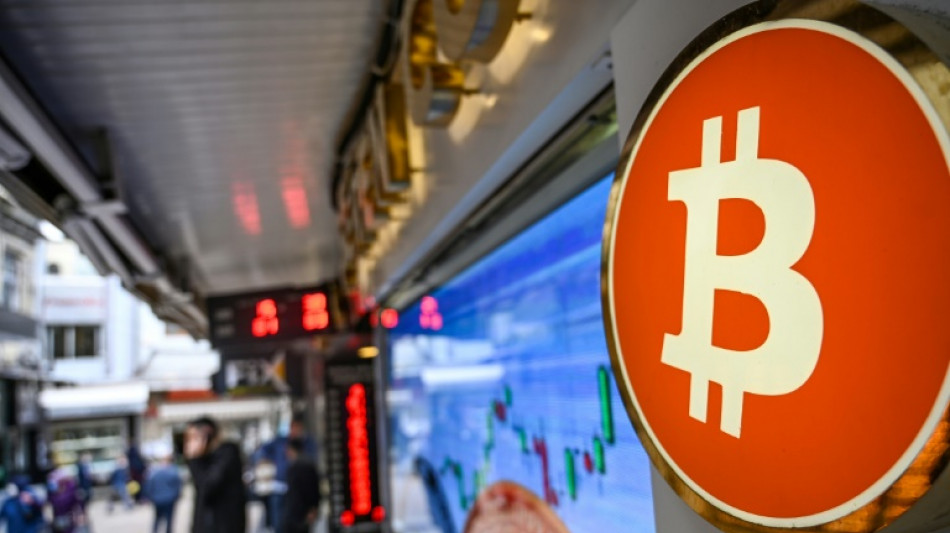
-
 Lyles edges Tebogo in Zurich thriller in perfect Tokyo boost
Lyles edges Tebogo in Zurich thriller in perfect Tokyo boost
-
Lyles trumps Tebogo in Zurich, Alfred shines

-
 Arsenal optimistic about Havertz return after knee surgery
Arsenal optimistic about Havertz return after knee surgery
-
Pressure-free Wong relishing US Open adventure

-
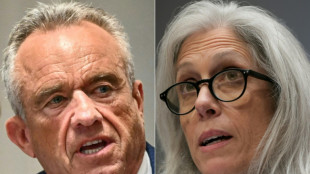 RFK Jr bashes US health agency after its chief is sacked
RFK Jr bashes US health agency after its chief is sacked
-
Swiatek wobbles at US Open as Sinner targets third round

-
 Alfred storms to 100m victory at Diamond League finals
Alfred storms to 100m victory at Diamond League finals
-
Bison herds 'reawaken' Yellowstone's prairies

-
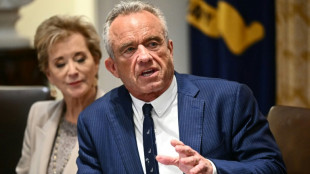 RFK Jr bashes US health agency after firing its chief
RFK Jr bashes US health agency after firing its chief
-
Swiatek labours into US Open third round

-
 UN sets 2027 exit for Lebanon peacekeepers after Israeli strikes
UN sets 2027 exit for Lebanon peacekeepers after Israeli strikes
-
Brazil police target network that siphoned billions from fuel sector

-
 Liverpool and Man City face Real Madrid in Champions League, PSG get tough draw
Liverpool and Man City face Real Madrid in Champions League, PSG get tough draw
-
'Strangest' dinosaur covered in spiked armoury: scientists

-
 UN Security Council votes for Lebanon peacekeepers to leave in 2027
UN Security Council votes for Lebanon peacekeepers to leave in 2027
-
Badminton federation smoothes feathers ruffled by shuttlecock shortage

-
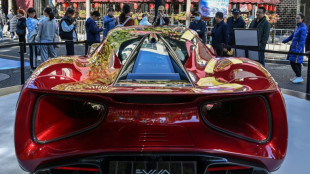 Luxury carmaker Lotus to slash UK jobs amid US tariffs
Luxury carmaker Lotus to slash UK jobs amid US tariffs
-
Small parcels in limbo as Trump moves to end US tariff exemption
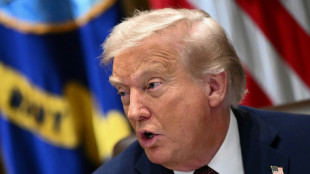
-
 Russian attack killing 19 in Kyiv unleashes international fury
Russian attack killing 19 in Kyiv unleashes international fury
-
UN chief condemns 'endless' Gaza horrors as Israel presses offensive

-
 Vine claims solo Vuelta stage six victory, Traen takes lead
Vine claims solo Vuelta stage six victory, Traen takes lead
-
Emma Stone stars in apocalyptic satire at Venice Film Festival

-
 England skipper Aldcroft to miss rest of Women's Rugby World Cup pool phase
England skipper Aldcroft to miss rest of Women's Rugby World Cup pool phase
-
Norris sees others closing gap with dominant McLaren

-
 UK govt seeks to overturn ban on housing migrants in hotel
UK govt seeks to overturn ban on housing migrants in hotel
-
Europe powers move to Iran sanctions 'snapback' over nuclear drive

-
 Russian attack kills 18 in Kyiv, unleashes new international fury
Russian attack kills 18 in Kyiv, unleashes new international fury
-
'Ruins': Pakistan's Punjab reels from flood surge

-
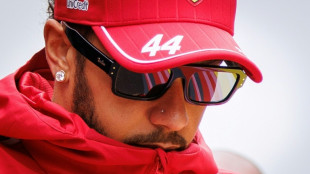 Struggling Hamilton aims to rediscover the joy
Struggling Hamilton aims to rediscover the joy
-
Europe powers move to reimpose UN sanctions on Iran over nuclear drive

-
 US Fed Governor Lisa Cook sues Trump over move to fire her
US Fed Governor Lisa Cook sues Trump over move to fire her
-
Froome hospitalised after training crash in France

-
 Russian attack kills 17 in Kyiv, unleashes new internatioinal fury
Russian attack kills 17 in Kyiv, unleashes new internatioinal fury
-
Prince Harry to visit UK on anniversary of queen's death

-
 'Something has to change', says Amorim after United humiliation
'Something has to change', says Amorim after United humiliation
-
Stocks mixed after Nvidia record earnings
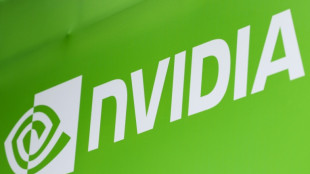
-
 Actor Micheal Ward in UK court on rape charges
Actor Micheal Ward in UK court on rape charges
-
EU summons Russian envoy after mission damaged in Kyiv strike
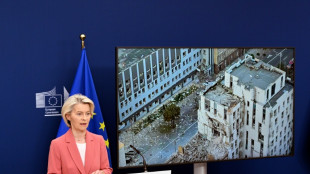
-
 Deadly Russian attack kills 15 in Kyiv, raising fears for peace talks
Deadly Russian attack kills 15 in Kyiv, raising fears for peace talks
-
Swiss court rejects Islamic scholar Ramadan's rape conviction appeal
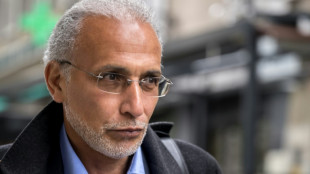
-
 Russian attack kills 14 in Kyiv, including three children
Russian attack kills 14 in Kyiv, including three children
-
Swiss economy set to slow due to US tariffs

-
 Hong Kong media mogul Jimmy Lai verdict to come 'in good time': judge
Hong Kong media mogul Jimmy Lai verdict to come 'in good time': judge
-
Swiss court rejects Tariq Ramadan rape conviction appeal
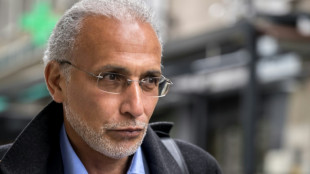
-
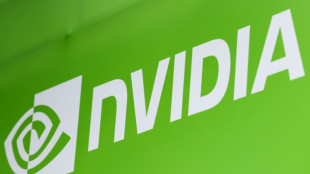 Asian markets mixed after Nvidia earnings
Asian markets mixed after Nvidia earnings
-
Rising Australian golfer makes comeback after losing sight in left eye

-
 Scandal facing sister of Argentina's president: 3 things to know
Scandal facing sister of Argentina's president: 3 things to know
-
Need a pee? Japan has QR code for that
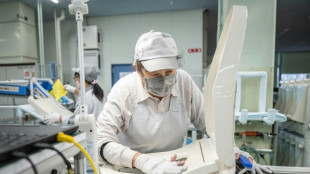
-
 Five things to know about Guyana
Five things to know about Guyana
-
Guyana, emerging oil superpower, elects new leaders


Crypto-curious corporations struggle to find right recipe
Four years ago, fried-chicken chain KFC tweeted from its Canadian account that it would accept bitcoin as payment for its "buckets".
The company told AFP its tongue-in-cheek campaign -- "digital tender for chicken tenders" -- sold out in an hour and the chain has not taken crypto payments since, but online articles regularly recycle the claim that KFC "accepts" bitcoin.
Many other companies have tried to harness crypto payments before abandoning their efforts, Tesla and Dell among them.
Bitcoin will almost certainly never be practical for everyday purchases because its value fluctuates wildly, and each transaction is expensive, energy-hungry and takes at least half an hour.
"No one's going to walk into a KFC to buy a chicken burger and then have to wait 30 minutes for a payment," South African developer and crypto expert Andre Cronje told AFP.
But there are now thousands of smaller cryptocurrencies with faster processing times and more stable prices.
Analysts say the total market value of cryptocurrencies has now topped $2 trillion, roughly half of which is bitcoin.
Companies are gagging to get in on the act and developers like Cronje are building the infrastructure to enable the virtual coins to be used to pay for everyday items.
But public buy-in is crucial, and corporations seem to be struggling to find the perfect formula.
- 'Watch the jockeying' -
Microsoft typifies the emerging pattern of big companies dabbling in crypto.
The first rule: keep it at arm's length from the core business.
The tech giant has stressed that shareholders will not be exposed to the ups and downs of crypto prices.
PayPal and Apple, two other crypto-curious corporations, have made similar pledges to their shareholders.
To keep crypto off its balance sheet, Microsoft partnered with a firm called Bakkt that allows clients to convert crypto assets into products like gift cards for Xbox, or charge their Starbucks payment card.
Bakkt, which has received investments from Microsoft's venture capital fund M12, went public last year and a flurry of big partnership announcements with the likes of Mastercard sent its share price soaring.
But then came the nose-dive as it reported widening losses and its business came under scrutiny.
The firm had said it expected to have nine million customers by the end of 2021, yet its executives gave a figure of 1.7 million transacting accounts late last year.
PayPal, meanwhile, garnered a lot of publicity for a "checkout with crypto" feature launched in the US and UK last year.
PayPal's system converts users' cryptoassets into money before passing on payment to the vendors.
But it is unclear how popular any of these services are -- none of these companies responded to AFP requests for details of the uptake.
Market watchers say it is too early to tell how these forays into crypto will play out.
"My view is to not get too excited yet but just watch the jockeying," said analyst John Freeman of CFRA research, accepting the hot air made it difficult to predict what would happen next.
- 'When, not if' -
The barriers to widespread adoption of direct crypto payments for everyday items are considerable -- perhaps even unsurmountable.
Developer Cronje said he functioned largely without the need for regular cash or banks by using services like BitPay and BitRefill, which allow crypto to be spent anywhere from Amazon to Uber.
But he accepted his less tech-savvy friends "would be broke very quickly" if they tried to rely on the blockchain, the technology that underpins cryptocurrencies.
Instead, he envisages a future where people will continue to use credit cards and banks but back-end tasks will be largely automated on the blockchain.
"This is a technology that conservatively is going to save them between 20 percent and 25 percent of their overheads and their costs," he said.
"So it's not a matter of if, it's a matter of when."
Meanwhile, non-financial businesses will continue to throw themselves into the crypto space, often to emerge slightly wiser but no richer.
The Pavilions hotel chain, for example, partnered with a payments firm last year to allow customers to use crypto but found it made little difference to its business.
"It turns out no one likes to spend their bitcoins, even on holidays!" Pavilions spokesman Tim Sargeant told AFP in an email.
"It has shown us that bitcoin is more an investment tool than something people wish to part with for payment."
G.Schulte--BTB
